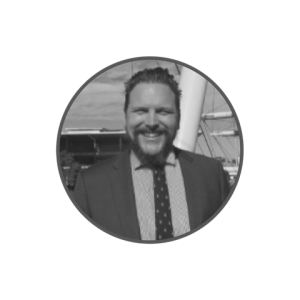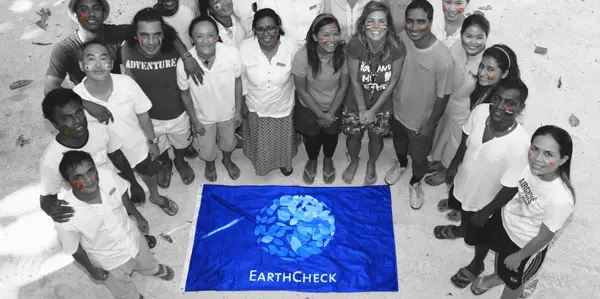
EarthCheck is the world’s leading scientific benchmarking certification and advisory group for travel and tourism. Since 1987, EarthCheck have helped businesses, communities and governments to deliver clean, safe, prosperous and healthy destinations for travellers to visit, live, work and play. In this piece, we hear from Andre Russ, VP Sales, EarthCheck – 2017 winner of The Premier of Queensland’s Business Services Award.
What do you see as the biggest opportunities and challenges in export at the moment, and how are you approaching them?
Some of the biggest opportunities for export, certainly for EarthCheck and the space that we work in, is the global commitment towards sustainability and importantly evidence and science-based solutions, which is something that EarthCheck has been working on for many years.
I think technology has played a key role supporting our ability to sell EarthCheck services into 70 countries. It means we can increase distribution through software as a service or through platforms as a service.
From an Australian perspective, politics will always play a role. How EarthCheck as a company is perceived by governments globally – it presents opportunities as well as challenges.
Opportunities include freedom of movement, especially when it comes to working with the APEC economies. The sheer fact that I am able to access an APEC Travel Card means that I don’t need to apply for a visa when I visit China. An APEC Travel Card streamlines the entry process into APEC economies which is an advantage in terms of a small to medium-sized business.
Language is always going to be a challenge in any type of export. But you need to think more strategically and form partnerships with smart individuals and locally-based operators who are multi-lingual including being able to speak the local dialect; that’s really important. Strategic alliances with local partners is the reason why EarthCheck is so successful globally.
How do you establish partnerships along the supply chain? And how do you establish networks of people to bounce ideas off in export?
Trade and Investment Queensland (TIQ), particularly from a Queensland perspective, can be really helpful if you know where to look. If not, it is sometimes quite difficult but we encourage TIQ to make it easier for the SMEs to get access and advice.
One of the great things that TIQ has made available is the ability to book a meeting space onsite in a lot of their locale offices. When you’re trying to enter into a foreign market, it’s minor details that matter. For example, when I visited Tokyo on a business trip, I was able to book a meeting space in the TIQ office. They have a fantastic boardroom and it didn’t cost me anything. The staff were really supportive and Tak Adachi, who is the Trade Commissioner in Japan, is wonderful and very helpful.
Recently I was talking with the Trade Commissioner for Latin America who said, “Look, I don’t really know that many people in tourism.” However, once we had discussed EarthCheck and our operations, he knew exactly the type of customer we were looking for and he was more than happy to make the relevant introductions. It’s really important to understand cultural protocol in destinations where EarthCheck works.
It’s about research, research, research. And a lot of research is done personally – I have friends, in different countries around the world, who I’ve met and can call on because I have built a relationship with them over the years. I’ll be honest with you, I have a book that I consistently refer to. It’s called When Cultures Collide: Leading Across Cultures, by Richard D. Lewis. It’s my go-to for better understanding of a destination and its culture. What are their belief systems? What are the structures? What are the taboos? How to behave in meetings; how you should conduct yourself, including body language for any type of negotiation. I know it’s just a book, but honestly, it has helped me multiple times to understand how I approach culture. As an Australian, we need to have a certain kind of thinking, sensibility and especially empathy to put myself in their shoes.
Mind your Ps and Qs… where you think you’re being nice, but you are oblivious to the words you speak, the conversation tone or the way you sit. All of those things come into play and that can determine whether or not you make a deal.
Earlier this year, we were in discussion with a distributor in Beijing. There was a 20-month process for several EarthCheck products to be approved by the Chinese government: a huge effort and workload. The distributor said, “Look Andre, from a Chinese perspective, cultural sensitivity is the difference between having a 100 clients or 10,000 clients.” So my advice is to actually listen to what the locals are telling you about the way it works there – it’s absolute gold for anyone wanting to grow an export market.
From a sales perspective, a lot of business evolves from positive word-of-mouth. In terms of EarthCheck’s expansion, we have many clients and enquiries that come directly to us saying, “We would like to become a sales partner of EarthCheck,” or “We’d like to look at a strategic partnership,” (usually a university) or “We’d like to consider a research project.” People approach EarthCheck all the time.
How do you keep up with changing buyer habits and trends?
Forecasting and analysing trends is something that EarthCheck specialise in as we’ve been working in tourism for three decades. From humble beginnings in 1987, we started the first National Centre for Studies in Travel and Tourism and appointed the first ever Professor of Tourism for James Cook University. It’s an area that EarthCheck has dominated for a long time and we continue to be the world’s leading, scientific benchmarking, certification and advisory group for travel and tourism. We were the commercialisation arm of the Sustainable Tourism Cooperative Research Centre and the largest source of sustainable tourism research in the world, tapping into 300+ PhD research papers. EarthCheck works with some of the foremost travel and tourism brands in the world, and we work closely with their teams to understand what they’re looking for in terms of innovation.
We also have very smart people who work with EarthCheck. You can have great software and branding; but you have to be able to entice talent. I’ve worked with EarthCheck for 10 years and we seem to be able to attract some of the brightest minds in the travel and tourism field. It’s inspiring!
You need to be passionate to work in tourism and even more so in the field of sustainability. A lot of people have those ‘spear in the heart’ moments and say, “We need to shift perceptions at a local state, regional and governmental level.” EarthCheck is the vehicle that has been outwardly proven to help organisations and individuals turn thoughts into actions. Some people say, “I can work here, and in its simplest form, change the world,”. At EarthCheck we get to do that everyday. So I think a lot of people get excited about wanting to be part of EarthCheck.
Another area we focus on is staff professional development. We may be a small team, but we like to invest in our staff. We have a modest staff turnover and that’s great because most of them springboard onto bigger and greater roles within the industry. We guide and motivate our team and we believe that’s really important. Of course, we’d like to retain staff, but we want to be a place where people think, “If I can cut it at EarthCheck, I can write my ticket afterwards.” And that approach has enabled us to attract diamond staff – absolutely!
Sometimes you need to reach out to others because you don’t have all the answers. You’ll be surprised at the information that people are happy to share with you over a coffee and a 10 minute chat. Alternatively it could be an overseas call to someone who’s in the same industry and you say, “I just want to know, how did you get to where you are?” They might also share their challenges and insight into some of the pitfalls they have faced along the way. Another avenue is to connect with someone in a parallel industry, but non-competitive; and introductions speak a thousand words! As I said, you’ve got to get yourself out there – on the phone, pitching. But at the end of the day, relationship building is easier and more personal when it’s face-to-face and that’s where you begin to nurture a relationship and open the lines of real communication.
Don’t be afraid to fail, but learn from your mistakes and don’t make them again. Be selective about the markets you’re targeting because you can’t be everywhere: think, plan and act strategically.
Like the insights you’ve gained? Andre Russ will be speaking at the Sunshine Coast’s Exporter’s Forum on 2 August, in a panel discussion moderated by our Director Najib Lawand. It will include insights from Euromonitor International and will feature other Queensland Export Award Winners and Finalists from a diverse range of industry sectors. Seating is limited; book now to confirm your place. Learn more about it here. See you soon!



